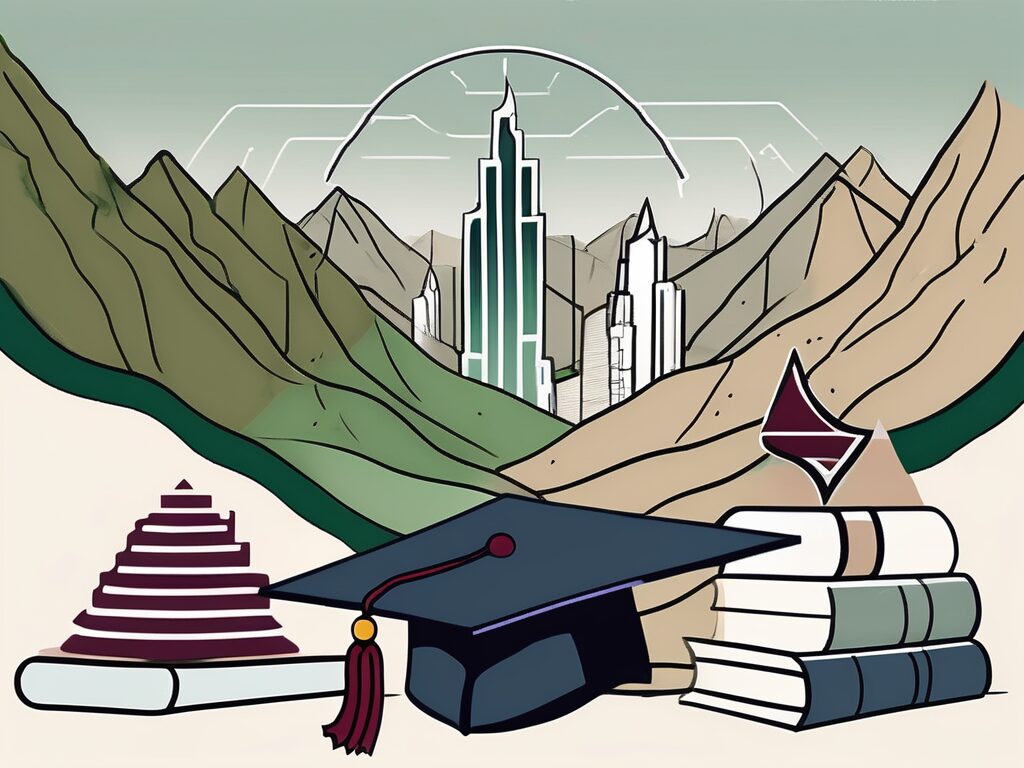The world of education is a dynamic and ever-evolving landscape, with unique challenges and opportunities in every corner of the globe. For those with a Master’s in Education, the Middle East presents a particularly interesting case study. In this context, we’ll be focusing on two of the region’s most prominent cities: Dubai and Qatar. Both are renowned for their commitment to education, but they also present unique challenges for educators. Let’s delve into four key comparisons.
1. Cultural Differences
Understanding Cultural Nuances in Dubai
In Dubai, the cultural fabric is a rich tapestry of traditions and modernity. As an educator, understanding these cultural nuances is paramount. For instance, the importance of religion in everyday life is a significant aspect that influences the educational system. Moreover, the concept of ‘face’, or maintaining dignity and respect in social interactions, is deeply ingrained in the Emirati culture. This can impact classroom dynamics and the way feedback is given and received.
Furthermore, the multicultural nature of Dubai, with expatriates making up a significant portion of the population, adds another layer of complexity. Teachers need to navigate this cultural diversity, ensuring inclusivity and respect for all students’ backgrounds.
Embracing Cultural Diversity in Qatar
Similarly, in Qatar, cultural understanding is crucial. The Qatari society is deeply rooted in Bedouin traditions and Islamic principles, which permeate the educational system. Teachers need to respect these traditions, while also fostering a learning environment that encourages critical thinking and creativity.
Like Dubai, Qatar is also a melting pot of cultures, with a large expatriate population. This diversity can be a boon for educators, providing opportunities for intercultural learning and global citizenship. However, it also necessitates a nuanced understanding of different cultural norms and expectations.
2. Curriculum Differences
The Dubai Curriculum
In Dubai, the curriculum is a blend of international and local educational standards. The city boasts a wide array of international schools, offering curricula from around the world, including the International Baccalaureate (IB), British, American, and Indian systems. However, all schools are required to teach Arabic and Islamic Studies, reflecting the local culture and heritage.
For educators, this diversity of curricula can be both a challenge and an opportunity. It requires adaptability and a broad knowledge base, but also allows for a rich, varied teaching experience.
The Qatar Curriculum
Qatar, on the other hand, has embarked on an ambitious educational reform, with the aim of creating a world-class educational system. The Qatari curriculum is designed to foster creativity, critical thinking, and a global outlook, aligning with the country’s National Vision 2030.
For teachers, this means staying abreast of the latest educational trends and methodologies. It also requires a commitment to lifelong learning, as the Qatari educational system is continually evolving.
3. Professional Development Opportunities
Professional Growth in Dubai
Dubai is known for its commitment to professional development. The city offers numerous opportunities for teachers to enhance their skills and knowledge, from workshops and conferences to advanced degree programmes. Moreover, the competitive nature of the Dubai education sector encourages teachers to continually strive for excellence.
However, this can also create pressure to constantly upskill and stay ahead of the curve. Balancing professional growth with teaching responsibilities can be a challenge.
Continual Learning in Qatar
Qatar also places a strong emphasis on professional development. The country’s Supreme Education Council regularly organises training sessions and workshops for teachers. Additionally, the Qatar Foundation’s Education Development Institute offers a range of professional development programmes.
However, like in Dubai, this focus on continual learning can be demanding. Teachers need to juggle their professional development with their day-to-day teaching duties, which can be a daunting task.
4. Salary and Benefits
Compensation in Dubai
Teaching in Dubai can be financially rewarding, with competitive salaries and benefits. Many schools offer housing allowances, health insurance, and end-of-service gratuity. However, the cost of living in Dubai is high, and this needs to be factored into any financial considerations.
Moreover, the competitive nature of the job market in Dubai means that teachers need to continually prove their worth. This can add an additional layer of pressure to the teaching profession.
Remuneration in Qatar
Qatar also offers attractive salaries and benefits for teachers, often including housing, transportation, and health insurance. The cost of living is slightly lower than in Dubai, which can make for a more comfortable lifestyle.
However, the high expectations and rigorous standards of the Qatari educational system mean that teachers need to consistently perform at their best. This can be challenging, but also rewarding for those who thrive in a high-performance environment.
In conclusion, teaching with a Master’s in Education in Dubai and Qatar presents unique challenges and opportunities. Understanding the cultural, curricular, professional, and financial aspects of these two cities can help educators make an informed decision about their career path. Both cities offer a rich, diverse teaching experience, but also require adaptability, cultural sensitivity, and a commitment to continual learning.
Advance Your Teaching Career with The IQTS at UWE
As you navigate the unique challenges and opportunities of teaching in Dubai and Qatar, The International Qualified Teacher Status (iQTS) programme at UWE is your gateway to professional development and career advancement. With our Level 7 qualification, you’ll not only meet the stringent qualification requirements of international schools but also enhance your prospects for promotions and salary increases. Join a global community of educators, deepen your understanding of international curricula, and balance your professional growth with your current commitments through our flexible online study options. Make Your Next Step with iQTS and transform your teaching journey today.

